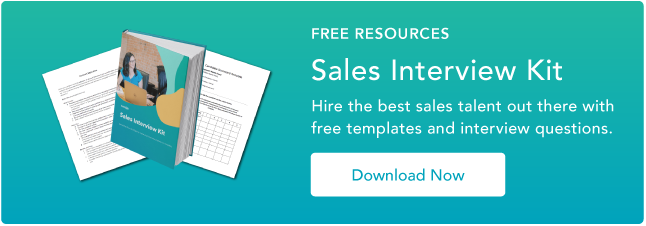How do you prepare for a test when you don’t know what questions they’ll ask? Preparing for a job interview is somewhat of a guessing game. Fortunately, most hiring managers stick to many of the same executive assistant interview questions and themes.

An executive assistant (EA) is by nature a personal job where fit is essential — I know because that was my first job out of college.
My boss had never hired an EA before, and I had never been one before. In my interview, one of his first questions was, “How do you feel about [gesturing at his desk covered in papers] this?” I got the job (and organized the papers), but we certainly both could have benefitted from better interview questions to establish expectations earlier.
Dive into these questions to prepare yourself for your next executive assistant interview.
Table of Contents
- What makes a good executive assistant?
- What are executive assistant interview questions?
- 20 Interview Questions and Answers for an Executive Assistant
What makes a good executive assistant?
The best EAs are resourceful and work independently to create solutions. They should be process-oriented, digitally literate, and comfortable handling logistics. EAs need to be diplomatic with good communication while remaining a firm and decisive gatekeeper for the executive.
Ali Schwanke, CEO of HubSpot consultancy Simple Strat, has hired several virtual assistants to assist her with tasks from researching speaking engagements to managing her inbox and posting on social media. With time, she found she needed someone with digital software skills who could jump in quickly without much guidance.
“It’s important to find someone who can help identify opportunities for me,” she suggests. “This has been helpful to me as my assistant learns more about my life and habits, and she can suggest things that make my life easier.”
What are executive assistant interview questions?
Executive assistant interview questions are questions that an interviewer may ask a candidate during an EA interview. Job-seekers can use this list to prepare for a job interview, even if the exact questions vary. Hiring managers can use EA interview questions to design a better interview process and find the best fit to work with them.
20 Interview Questions and Answers for an Executive Assistant
We’ve compiled the list of the top questions interviewers ask during EA interviews, plus why they’re important and how you should answer them. Interview questions generally fall into three categories:
- Questions about hard skills ask about your experience using different tools and are fairly straightforward.
- Questions about soft skills like communication or event planning are a little more complex. Showcase your soft skills by walking them through your thinking process for a situation or sharing an accomplishment.
- Behavioral questions are the trickiest kind of interview question and often start with “Tell me about a time…” or “How would you handle…?” Candidates should prepare three to five anecdotes about an accomplishment or difficult situation they navigated that they can adapt to any behavioral question.
Whether you’re applying for a virtual assistant or a traditional executive assistant role, you can expect some form of the following 20 questions in your hiring process.-jpg.jpeg)
1. Tell me about yourself.
Why it matters: This question is often the first one asked and can trip up candidates. Ummm … do you want my life story? It’s important because it’s your first chance to speak and make a good impression.
First impression bias is real: Many people make a judgment in the first minute of an interview that can influence the rest of the hiring process.
How to answer: This question is more of an icebreaker, so keep it concise with an upbeat tone. Your self-introduction should be at most 20 seconds long and should share highlights of your resume and cover letter.
For example, “Hello, I’m ____. I’m a ____ professional with __ years of experience working in the ____ and _____ industries.”
You can add one quick personal detail like where you grew up or where you went to school, but no more than that. Above all, don’t ramble!
2. Why do you want to work for this company?
Why it matters: Companies are looking for one thing with this question: They want to know that you took the time to research what the company does.
For an EA, this demonstrates that you took the initiative to prepare for the interview and that you can find and analyze basic information online.
How to answer: There’s no exact right answer to this question, as it’s different for every person. Take a look at the company’s newsroom to see if there are exciting innovations you can mention or their mission if working for a mission-based organization is important to you.
It’s also good to reference a company’s good reputation if you know someone who works there and recommends them as an employer, for example.
3. Why do you think you’re a good fit for this job?
Why it matters: This is another question that interviewers use to see if you did your research and closely read the job description. This is also a perfect setup question for giving your elevator pitch as to why your skills match up with the EA job.
How to answer: Analyze the job description and identify the top two or three skills or characteristics they reference. Prepare a short pitch for how you’ve applied those skills in past roles.
For instance: “You said you’re looking for strong written communication skills. As an assistant to a CEO, I wrote employee memos and email correspondence on his behalf and drafted press releases that went out to several thousand shareholders.”
4. Why are you considering leaving your current position?
Why it matters: All hiring managers want to know the “why” behind a candidate leaving their previous employer. This question is tricky because you can’t always say the real reason outright (like looking for better pay).
When answered well, it can set you up as smart and ambitious. When answered poorly, you can paint yourself as a job hopper or someone who’s difficult to work with.
How to answer: Keep your answer as truthful as possible while staying tactful. If your previous job was a toxic work environment with a terrible boss, say, "I’m looking for an employer with a positive working environment where I truly engage and contribute as part of a team.”
Always keep your emphasis on positive, forward-thinking goals instead of looking back. It’s also good to talk about different skills you want to nurture that you couldn’t in your previous job — this shows that you want to keep growing as a professional.
Make sure you don’t fall into the trap of trashing your former employer. Confidentiality is very important for EAs, and this is usually a huge red flag for hiring managers.
5. What is an accomplishment you’re proud of?
Why it matters: This question lets you brag about yourself! Your answer will show what you value and also how you measure success.
How to answer: Again, there’s no right answer to this question. Try to think of something that shows strong EA traits, like resourcefulness and organization. Whichever accomplishment you choose, use the STAR method to show your process and how you measure it as a success.
If you’re new to the profession, you can choose an accomplishment outside of work, like raising money for a charity or starting a club at your college.
6. How do you keep your time and tasks organized?
Why it matters: Most executives need to hire an assistant when organization isn’t their strength or when the volume of things that need to be organized surpasses a volume they can handle. They want to know that you can manage everything without dropping the ball.
How to answer: You can showcase how you’ve used tech like Google Docs, Excel, or a project management software to organize tasks and information. If you have a proven time management process, explain what it is and how you implement it.
Pro tip: Check out time management tips from HubSpot’s own EA.
7. Are you willing to work overtime?
Why it matters: Each company is different, but it’s common for EAs to occasionally work outside of business hours to accommodate the needs of a fast-paced leader. Establishing this expectation at the outset can determine whether it’s going to be a fit for both parties.
How to answer: Let the interviewer know if you’re flexible, but balance this with setting boundaries early. This is a good time to turn the question around with a few of your own.
- Are overtime hours an exception or the norm for someone in this position?
- What is the expectation for checking email outside of working hours?
- What are the typical hours logged for someone in this position?
8. How would you handle several important assignments from multiple managers that all need to be completed by the end of the day?
Why it matters: It’s common for EAs to support more than one executive, so this situation may arise regularly. Even with just one manager, you may have many requests in a given day, and they want to know how you’ll handle them.
How to answer: Executives want to know that you can multitask and handle the pressure of competing priorities. They’re also looking for communication skills. If you realize that everything assigned to you can’t be completed, how will you communicate that to everyone involved?
9. Tell me about a mistake you made at work. How did you fix it?
Why it matters: No manager expects you to be perfect. This question gauges how you will problem-solve and take responsibility when you don’t do something right the first time.
How to answer: Be honest. Consider choosing a time when you were doing something for the first time to show how you can learn and grow with experience. Don’t go overboard, though: Stick to examples with minor, rather than major, consequences for your boss.
10. How do you handle conflict in the workplace?
Why it matters: This is a good question for anyone, especially EAs, since they need to work with many people across a company. Employers want to know that you can work with a wide range of personalities.
How to answer: Give a relevant and specific example of what steps you would take if you were in conflict with a coworker. This can be specific or hypothetical.
For example, “If I were frustrated with how a coworker spoke to me in a meeting, I would approach them privately and let them know how their words made me feel. I would listen to their side to find out if I’m missing anything from their perspective, then make a plan to move forward.”
11. What’s an example of something you’ve done to improve processes?
Why it matters: Creating and maintaining processes are very important for EAs. This is an example of how you think and can show your initiative.
How to answer: Have you created a new organization system for something, like color-coding or folders in an inbox? Have you improved an ineffective system or implemented a new software? Any of these would make excellent examples for an EA interview.
12. Tell me about your previous experience with event planning/managing a calendar/managing an inbox.
Why it matters: Many executives look for direct experience in an area that’s important to them because they simply don’t have the time to do a lot of training — that's why they need an assistant. Common examples of this include event planning, travel scheduling, social media management, and managing their inboxes.
CEO Ali Schenke shared that she’s grown to value assistants with direct previous experience in relevant soft skills because they could hit the ground running much more quickly: “I’ve had assistants who were assistants before, and that was way more successful than trying to hire someone who hadn't been an executive assistant to a fast-moving leader.”
How to answer: If you have this experience, share your level of proficiency and a couple of examples of work you’ve done in that area (such as planning a conference).
If you don’t have work experience in the area they’re looking for, you can share any experience from outside of work (like how you planned an event for a school club), or you can state how you’d approach the challenge.
For example, “I haven’t planned a large event before, but here’s how I would go about it…”
13. What is your experience with Microsoft Excel/Word/Powerpoint/Zoom?
Why it matters: As we’ve covered, executives don’t have time to sit down and teach their EAs how to do their job step by step.
How to answer: If you have experience with the tool in question, share how you’ve used it and your level of expertise. Like the question above, not having experience with a specific software doesn’t mean you won’t get the job.
Instead, share how you can learn to use software platforms quickly and how you’ve taught yourself a new skill.
14. What are your career goals in the next five years?
Why it matters: Your supervisor wants to see that you take the position seriously and won’t jump ship within a few months of being hired. This question can be tricky because while a rare employer wants to see ambition, most want to see a commitment to longevity.
How to answer: The key to answering this question is to keep your answer vague. If you don’t see yourself in that position or company in five years, give an answer focusing on the skills you’d like to master.
For instance, “Over the next two years, I’d like to immerse myself in mastering all aspects of this position and building relationships across the company. In the following two to three years, I’d like to build my internal communications and public relations skills so I can contribute further to the executive function.”
15. How would you handle an angry client trying to reach your supervisor?
Why it matters: It’s common for salespeople, clients, and anyone else you can think of to try and reach executives to air complaints or pitch them something.
How to answer: Walk your hiring manager through the steps you would take to calm this person down and take a message or divert them to another department, like customer service.
Hiring managers want to see that you can be calm and tactful under pressure while protecting your boss’s time.
16. How would you go about saying “no” to someone more senior than you?
Why it matters: Like the question above, you’ll sometimes need to manage people internally to protect your boss’s interests. For instance, someone might want a meeting with your boss that day, but their schedule won’t accommodate it.
How to answer: Again, describe how you will show tact to someone and find other ways to accommodate them if their request isn’t possible. Use phrases like, “I can’t do X, but what I can do is…”
17. Tell me about a time you went above and beyond for a project.
Why it matters: As we’ve covered, EAs should be able to operate without much supervision and go the extra mile to help their boss save time and headaches.
How to answer: Think of an example when you did something that wasn’t asked of you. Start with observing the need, then what action you took and what the result was. Since being an EA is a personal job, going above and beyond doesn’t always apply to work tasks.
Once, I went to pick up my boss’s wife from the gym when her car was stolen from the parking lot, and my boss was tied up in meetings. By the time he finished those important client meetings, the problem was already solved.
18. Can you tell me about an assignment where you had to think outside of the box?
Why it matters: Beyond following instructions and going the extra mile, hiring managers want to know that you can problem-solve with creative thinking. No two days are alike for an EA, and you never know what challenges you’ll face.
How to answer: Use the STAR method to tell a story about a time you had an unusual problem and used an unusual solution to make it work. In the Netflix show “Call My Agent!," there’s an episode where an agent accidentally double-books one of his actors.
To help avoid breaking a contract, EA Noémie steps in with her master scheduling skills and sketches a production schedule to get him back and forth between the two shoots.
19. What is your tolerance for ambiguity?
Why it matters: Employers want to see that an EA can gather and analyze information and make judgment calls even when they don’t have all the puzzle pieces. A more veiled way to ask this might be, “What type of environment do you work best in?” They want to see that you can thrive in an environment where everything is not spelled out for you with specific instructions.
How to answer: Give an example of how you would gather more information if an assignment was unclear. If sharing an anecdote from a real work situation, discuss how you remained flexible or learned from any mistakes you made.
20. Can you tell me about the best boss you’ve had and why?
Why it matters: This question is probing at the matter of fit. Your hiring manager wants to determine what type of management style you’ll respond to, and if it matches theirs.
How to answer: Share the characteristics of the best boss you’ve worked with, what you learned from them, or why you enjoyed working with them.
-jpg.jpeg)
Bonus: Illegal Interview Questions
In the U.S. (and many other countries), asking questions about a candidate’s marital status, children, religion, and citizenship or migration status is illegal. Unfortunately, according to Glassdoor, these questions still persist at some companies.
If you are asked an illegal question like this, you can decline to answer. Then reframe the question by sharing how you’re qualified to perform the job's functions.
Getting Ready
When applying for an executive assistant position, finding a role that’s the right fit is essential. Review the questions above and practice answering them honestly. From there, you can find an executive that matches your working style and secure the role.











